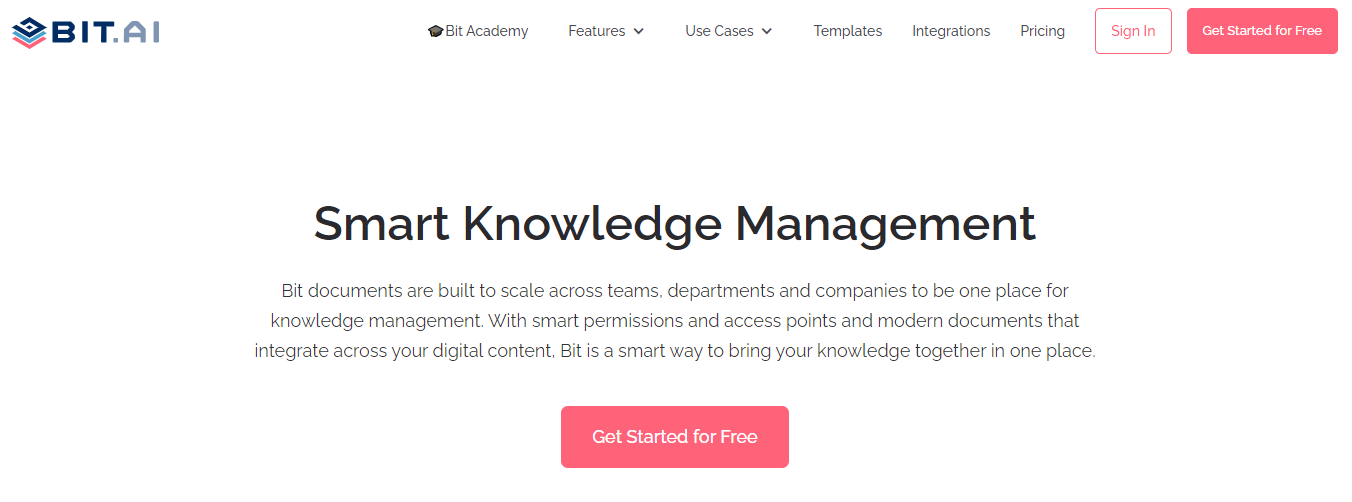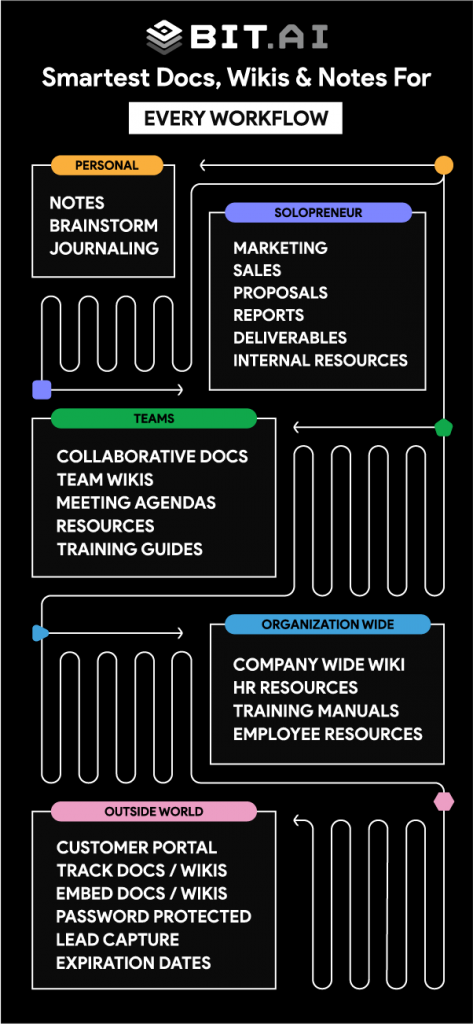Did you know that knowledge is like a pizza? The more you share it, the more it brings joy to everyone involved! Welcome to the world of knowledge sharing vs. knowledge management!
Knowledge sharing is the act of spreading wisdom like a smile. It’s when we generously pass on our insights, experiences, and ideas to others, nurturing a culture of learning and growth. On the other hand, knowledge management is about organizing, storing, and making sense of all our knowledge, ensuring it’s easily accessible and utilized efficiently.
But let’s face it, folks: sometimes knowledge can be as elusive as finding the perfect topping combination for a pizza. That’s where knowledge management swoops in to save the day, helping us categorize and retrieve information when we need it most. So, join us on this exciting journey as we explore the intricacies of knowledge sharing and management and discover how they work together in harmony like the perfect bite of pizza!
Prepare yourself for an informative adventure full of insights. Our article is bursting with knowledge that’ll make you crave more. So, grab a slice of curiosity and dive into knowledge sharing and management!
Knowledge Sharing Vs Knowledge Management: The Key Differences
Knowledge sharing is freely giving and receiving knowledge. In contrast, knowledge management ensures that the knowledge we possess is organized, accessible, and available when we need it the most. They go hand in hand, each contributing to the greater pursuit of wisdom and innovation.
So, what sets these two apart? Knowledge sharing is spontaneous and organic and thrives on human interaction. It’s like a lively conversation with friends, where ideas flow freely, and perspectives collide delightfully. On the other hand, knowledge management is the structured backbone that supports the continuous growth of an organization or community. It’s the silent guardian, ensuring valuable knowledge is captured, stored, and made accessibly, even if someone missed it.
Imagine you’re part of a team developing a groundbreaking new product. Knowledge sharing would be the brainstorming sessions, where ideas are freely tossed around, inspiring each other and building upon collective wisdom. On the other hand, knowledge management would be the documentation, archiving those ideas, lessons learned, and best practices so that future teams can pick up where you left off.
Did you know that 93% of employees believe knowledge sharing is essential to their job? That’s right, folks, the power of sharing knowledge is undeniable! But hold on because, in the next section, we’ll explore the vital importance of knowledge management and how it can revolutionize organizations’ operations. Trust me; you won’t want to miss it.
The Importance of Knowledge Management
In a bustling office where papers fly through the air, coffee mugs teeter precariously on stacks of documents, and employees desperately search for that elusive file. Chaos, right? Well, that’s where knowledge management swoops in to save the day. In this digital age, where information is the currency of success, the importance of knowledge management cannot be overstated. It’s like having a secret weapon in your organization, ensuring that valuable knowledge is captured, organized, and made readily accessible to those who need it most.
So, why exactly is knowledge management so crucial? Let me break it down for you:
1. Harnessing The Collective Wisdom
Knowledge management allows organizations to capture, organize, and leverage their employees‘ collective knowledge and expertise. It’s like having a library stacked with books written by the brightest minds in your field.
2. Avoiding Reinventing The Wheel
Have you ever wasted precious hours trying to solve a problem that someone in your organization has already encountered? With knowledge management, you can tap into the experiences of others and avoid reinventing the wheel. This not only saves time but also promotes efficiency and innovation.
3. Enhancing Decision-Making
Making informed decisions is crucial, whether you’re an individual or part of an organization. By effectively managing knowledge, you can access reliable information, insights, and lessons learned, enabling you to make better decisions. After all, a decision made with knowledge is better than a decision made in the dark.
And not just this, according to a study, organizations that actively manage knowledge can increase productivity by up to 20%. Also, a survey conducted by Deloitte found that knowledge management remains one of the top three issues that can affect a company’s success.
Now that we’ve scratched the surface of the importance of knowledge management, it’s time to dive deeper into the world of practical examples. In the next section, we’ll explore how knowledge management has transformed businesses, revolutionized industries, and even unexpectedly saved the day. Prepare for inspiring stories that will leave you eager to implement knowledge management practices in your life or organization. Don’t miss it!
The Examples of Knowledge Management
Are you tired of losing your keys, forgetting your passwords, and having your brilliant ideas vanish? Well, fear not, my friend, for knowledge management is here to save the day! Let’s dive into some examples of how knowledge management works its magic.
1. Knowledge Base
Imagine a vast library where all the answers to life’s questions are neatly organized and easily accessible. That’s a knowledge base! It’s a centralized repository of information that captures the collective intelligence of an organization. Need to know how to fix that printer? Just consult the knowledge base, and voila! You’ll be the office hero in no time.
2. Community Forums
Ah, the bustling marketplace of ideas! Community forums are like virtual town squares, where people share their knowledge, experiences, and sometimes even hilarious jokes. Whether seeking advice on coding or debating the best marketing strategy, community forums are the place to be. They foster collaboration, spark creativity, and provide a platform for experts and novices to connect.
3. Self-Service Portals
Picture a magical genie granting your every wish, except instead of wishes; it’s answers to your most important queries. Self-service portals are like that genie. These portals empower users to find information and resolve issues independently. From troubleshooting common software glitches to tracking your online shopping orders, self-service portals save time, frustration, and the sanity of customer service representatives everywhere.
Now, my curious friend, buckle up for the next adventure in our knowledge management journey. As marvelous as it may sound, even superheroes face their fair share of challenges. In our next thrilling instalment, we’ll explore the problems with knowledge management. Will our heroes triumph over these obstacles? Stay tuned to find out!
Problems That Arise With Knowledge Management
Knowledge management, a discipline that seeks to harness and organize the vast expanse of human know-how, isn’t without its challenges. As we embark on this journey, prepare to unravel the mysteries and challenges that await us.
1. Outdated Technology
In this age of smartphones that can predict your thoughts and cars that can drive themselves, some organizations still cling to their ancient technology. Outdated technology hampers the smooth flow of knowledge, causing frustration and making employees yearn for the digital age.
2. Knowledge Silos
Ah, the knowledge silos, those enigmatic fortresses where knowledge goes to live in seclusion, like a hermit hiding from the world. Teams and departments hoard their expertise, creating invisible barriers that hinder collaboration. Breaking down these silos requires a valiant effort and a sprinkle of magic to encourage knowledge to wander freely between different areas of the organization.
3. Resistance to Change
People often cling to their familiar ways of doing a specific task. Introducing new knowledge management practices can be met with resistance and skepticism. Overcoming resistance requires patience, open communication, and a touch of enchantment to win hearts and minds.
4. Lack of Time
Tick-tock, tick-tock! The clock is the merciless ruler of our lives, and time is the precious jewel we can never have enough of. Knowledge management requires effort, time, and dedication, but employees often struggle with a never-ending quest for deadlines and deliverables. Prioritizing knowledge management becomes crucial to ensure that the pursuit of knowledge doesn’t get lost in the hustle and bustle of everyday tasks.
And now, dear reader, our adventure continues as we’ve explored the challenges. Brace yourself for the next chapter, where we unveil the importance of knowledge sharing, a realm where collaboration and growth flourish like a whimsical garden. Join us on this magical journey as we discover the secrets that lie beyond the challenges, waiting to be uncovered.
The Importance of Knowledge Sharing
Do you ever wonder what would happen if people kept their knowledge to themselves, like a secret away from the world? Would we still be living in caves, discovering fire anew every generation? Luckily for us, knowledge sharing has played a pivotal role in advancing humanity, and it continues to be a driving force behind progress and innovation. So, let’s embark on a journey to explore the importance of knowledge sharing, unraveling its hidden gems along the way.
Imagine a world where every individual hoards their knowledge, refusing to share it with others. It would be like a comedy of errors, where reinventing the wheel becomes the norm, and countless hours are repeatedly wasted on solving the same problems. However, when knowledge is shared, something magical happens. Here’s why it matters:
Accelerated learning:
When people freely share their expertise, others can learn from their experiences and insights, accelerating the learning process for everyone involved.
Innovation and problem-solving:
Knowledge sharing fosters collaboration, allowing individuals to combine their unique perspectives and ideas, ultimately leading to innovative solutions and advancements in various fields.
Personal growth and development:
By sharing knowledge, you not only contribute to the growth of others but also expand your horizons. Explaining concepts and teaching others deepens your understanding and reinforces your knowledge.
Building a community:
Knowledge sharing creates a sense of community and camaraderie as people come together to support and uplift each other. It establishes a culture of collaboration and mutual respect, where everyone benefits from the collective wisdom of the group.
Continuous improvement:
Through knowledge sharing, individuals can learn from past successes and failures, enabling them to improve their skills, processes, and strategies continuously.
Now that we’ve dipped our toes into the ocean of knowledge sharing, it’s time to dive deeper and explore some remarkable examples of its impact. Get ready for fascinating anecdotes and stories that will inspire you to unlock the treasure chest of shared knowledge. But before we delve into those captivating tales, let me give you a glimpse of what’s to come in the next section, where we’ll uncover the real-world power of knowledge sharing. So stay tuned, for the journey has only just begun!
The Examples of Knowledge Sharing
Grandma’s recipe book is one of the most classic examples of knowledge sharing. Grandma knows that passing down her culinary knowledge is a precious gift, ensuring future generations can savor her famous chocolate chip cookies.
But knowledge sharing isn’t limited to family traditions. In the digital age, we have many platforms and tools. Here are some creative and effective ways people share knowledge:
👉Online forums and communities where enthusiasts swap tips on everything from gardening to astrophysics. Want to learn how to grow a business? There’s a forum for that!
👉Mentoring programs that connect experienced professionals with eager learners. The Internet has revolutionized how we learn, making knowledge accessible to anyone with an Internet connection. Online tutorials and courses cover various subjects, from programming and cooking to music and photography. Platforms like Coursera, Khan Academy, and YouTube have become virtual classrooms where experts generously share their knowledge to help others grow and develop new skills.
👉TED Talks and podcasts where experts distil their knowledge into engaging bite-sized talks. Think of it as a virtual knowledge buffet where you can sample a variety of topics, from the science of happiness to the history of cheese. TED Talks inspire, educate, and connect people across boundaries, leaving us with wonder and motivation.
Knowledge sharing is like a giant space where everyone brings unique knowledge and information. But, as with any feast, there will be a few challenges. So, grab a second helping of curiosity and join me in the next section, where we’ll explore the complex problems that arise with knowledge sharing.
Problems That Arise With Knowledge Sharing
Ever wondered why some organizations struggle with knowledge sharing? It’s like trying to teach a flock of penguins how to dance. As amusing as that mental image may be, the reality is that problems often arise when it comes to sharing knowledge in the workplace. So, let’s explore three common challenges that can be a hurdle in this knowledge-sharing journey.
1. Lack of Motivation
Have you ever tried sharing your knowledge only to be met with blank stares or disinterested responses? It can be quite frustrating, right? Well, you’re not alone. It’s like you’ve got some secret marketing strategy and are excited and eager to share it with your colleagues. But alas, they respond with lacklustre enthusiasm, barely lifting an eyebrow. Without a motivated audience, your knowledge-sharing efforts fall flat.
2. Lack of Support
One of the biggest challenges in knowledge sharing is the lack of support in the organization. Imagine you’re trying to teach your coworkers a new software program, but the IT department shrugs off your request for training materials and assistance. Knowledge sharing becomes a tedious task without the organisation’s necessary support.
3. Communication Barriers
The language barriers and use of excessive technical terms can also be challenging while sharing knowledge. Then there’s the issue of differing expertise levels. You might be an expert in your field, but when you try to convey your knowledge to someone just starting, it’s trouble for all of you. It can be frustrating, to say the least, and it often requires a delicate balance of patience and creativity to bridge that gap.
And let’s not forget about the attention span dilemma. In a world filled with distractions and endless information streams, getting someone to pay attention long enough to absorb your wisdom can feel like a headache.
As we bid adieu to these communication barriers, we find ourselves at the crossroads of knowledge sharing. In the next section, we’ll explore some practical strategies to overcome these obstacles and take action to foster effective communication. So, get ready for an enlightening journey toward better knowledge sharing.
Conclusion
And thus, we reach the culmination of our insightful discussion, where we have unraveled the distinctive merits and constraints of knowledge sharing and management.
Now, if you find yourself on the quest for a trustworthy knowledge-sharing platform, look no further than Bit.ai. This remarkable collaborative workspace empowers teams to seamlessly exchange knowledge, collaborate on projects, and craft exquisite documents, presentations, and spreadsheets.
Prepare to be enchanted by its user-friendly interface, which beckons you to explore its depths. Dive into the realm of real-time collaboration, where ideas take shape before your eyes, fueled by the collective genius of your team. Protect your precious knowledge with password protection, ensuring only the worthy have access.
Witness the beauty of version history, a journey through time that captures every iteration or change, preserving the evolution of your ideas. And let us not forget the harmonious integration with other tools, a symphony of efficiency that enhances your workflow.
Dear reader, it is time to embark on an extraordinary adventure. Embrace the bit-ification of your knowledge, and let the wonders of this platform unravel before you. Waste no time, for the treasures that await you, are boundless. Sign up now, and prepare to be dazzled!
Further Reads:
Knowledge Management Vs Information Management: The Differences!
Learn The Benefits of Knowledge-Sharing Between Software Teams!
Knowledge Management Process: A Comprehensive Guide!
Knowledge Management System Guide For Better Sales
Knowledge Sharing Platform vs Knowledge Base: The Key Differences!
Top Knowledge Management Examples for Business Productivity!
15 Impactful Knowledge-Sharing Quotes For Your Team!
Top 10 Best Knowledge Management Tools in 2023!


Related posts
Bit.ai | Watch to Learn More
What is Bit.ai?
Bit.ai is an innovative AI-driven knowledge and Document Managment suite designed to empower knowledge workers by streamlining the creation of, documents, wikis, and notes. With an intuitive interface and seamless integration, Bit.ai acts as a versatile assistant to help you collaborate, generate, organize, and visualize your ideas effortlessly. Whether you are drafting a report, managing a project, collaborating with your team or clients, or brainstorming new concepts, Bit.ai brings intelligence and creativity to every aspect of your work process.



